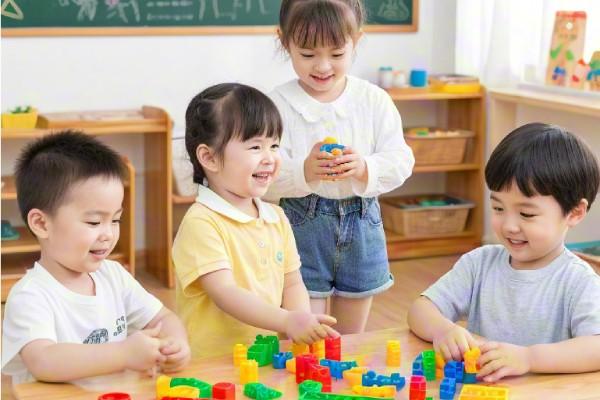Best learning games for children age 4-6
When it comes to learning games for children aged 4-6, it's essential to strike a balance between fun and educational value. At this age, children are developing critical skills like basic literacy, numeracy, fine motor skills, and problem-solving. Here’s a list of the best learning games that can support their development:

1. Osmo - Genius Starter Kit
- What it is: Osmo offers interactive educational games that integrate physical pieces with digital activities. Children use physical objects like letters, numbers, and shapes to solve problems on a tablet screen.
- Skills developed: Creativity, math, spelling, problem-solving, fine motor skills.
2. Rush: A Disney Pixar Adventure
- What it is: This interactive video game features characters from Pixar movies like "Finding Dory" and "Toy Story." Children solve puzzles and complete missions in different animated worlds.
- Skills developed: Critical thinking, teamwork, and problem-solving.
3. Story Cubes
- What it is: Story Cubes are dice with various pictures on them. Kids roll the dice and create stories based on the images that appear. It’s an excellent tool for stimulating creativity.
- Skills developed: Language skills, imagination, storytelling, communication.
4. LEGO Education SPIKE Prime
- What it is: This is a robotics kit designed for young children. They build simple robots and programs using a drag-and-drop interface.
- Skills developed: Early STEM skills, problem-solving, logic, engineering.
5. Monkey Math (App)
- What it is: This mobile app teaches kids basic math concepts through fun, engaging mini-games. It’s designed for children as young as 4.
- Skills developed: Number recognition, addition, subtraction, counting.
6. Endless Alphabet
- What it is: This educational app helps children build their vocabulary and understand letters and phonics. It’s playful and visually appealing with animated characters.
- Skills developed: Vocabulary, spelling, phonics, early literacy skills.
7. PBS Kids Games App
- What it is: The PBS Kids app features games with characters from beloved shows like "Curious George" and "Arthur." It includes a wide variety of subjects such as math, reading, and science.
- Skills developed: Language arts, math, social skills, scientific thinking.
8. The Learning Journey Match It!
- What it is: A set of matching cards that help children match letters, numbers, and images. These games come in different sets like letters, numbers, animals, and shapes.
- Skills developed: Memory, concentration, early math, and literacy.
9. Peekaboo Barn (App)
- What it is: This app teaches children about animals and the sounds they make through simple, interactive games.
- Skills developed: Animal recognition, auditory skills, basic vocabulary.
10. Tangram Puzzles
- What it is: Tangrams are puzzles that involve arranging seven pieces to form specific shapes. These puzzles can be physical (wooden or magnetic pieces) or digital.
- Skills developed: Spatial awareness, problem-solving, creativity.
11. The Very Hungry Caterpillar – Touch and Play
- What it is: Based on the classic children’s book, this app provides interactive activities where children can help the caterpillar eat food, count, and learn about transformations.
- Skills developed: Counting, colors, fine motor skills.
12. Zingo!
- What it is: Zingo is a bingo-style game that helps children build their vocabulary and develop matching skills. It's fast-paced and fun for younger children.
- Skills developed: Vocabulary, matching, and cognitive skills.
13. Simon Says (Classic Game)
- What it is: The classic game "Simon Says" encourages children to follow directions. There are digital versions, but even a simple verbal game with adults or peers can work wonders.
- Skills developed: Listening, attention, following directions.
14. Toca Boca Series (Toca Life, Toca Kitchen, etc.)
- What it is: Toca Boca apps are highly interactive, allowing children to explore virtual worlds, create stories, and engage in pretend play in a safe, open-ended environment.
- Skills developed: Creativity, imagination, storytelling, problem-solving.
15. CAMP GLOW
- What it is: This is an interactive learning game that introduces kids to nature and the outdoors through fun tasks and challenges. The game combines exploration with learning about the environment.
- Skills developed: Environmental awareness, problem-solving, collaboration.
Key Considerations:
- Screen time: Balance digital games with physical, non-screen activities to ensure a well-rounded development.
- Parental involvement: Whenever possible, engage in these games with your child to foster social interaction and shared learning experiences.
- Learning styles: Make sure the games match your child’s interests and learning style (visual, auditory, kinesthetic).
Games at this age should always prioritize fun and curiosity to inspire learning naturally.
When selecting educational apps for 5-year-olds, it’s important to choose ones that foster key developmental skills in a fun and engaging way. At this age, children are often ready to start formal learning in subjects like reading, writing, math, and even critical thinking. Here are some of the best educational apps for 5-year-olds that combine learning with play:
1. Endless Alphabet
- What it is: This app teaches kids vocabulary and phonics through animated characters. Each word is introduced with an engaging animation and a fun definition.
- Skills developed: Vocabulary building, phonics, early literacy skills, letter recognition.
2. ABCmouse.com
- What it is: ABCmouse is a comprehensive, award-winning app that covers a wide range of subjects, including reading, math, art, and science. It offers a structured curriculum with interactive games, puzzles, and songs.
- Skills developed: Early reading and writing, math concepts, critical thinking, creativity.
3. Khan Academy Kids
- What it is: A free educational app offering interactive activities in subjects like math, reading, and social-emotional learning. It includes animated characters and storylines to make learning fun.
- Skills developed: Early math, language skills, problem-solving, social-emotional learning.
4. Toca Boca Series (Toca Life, Toca Kitchen, Toca Nature, etc.)
- What it is: Toca Boca offers a series of open-ended, creative apps that encourage imaginative play. Apps like Toca Life or Toca Kitchen let kids explore different worlds and scenarios, from cooking to nature exploration.
- Skills developed: Creativity, problem-solving, storytelling, role-playing, imagination.
5. Starfall Learn to Read
- What it is: Starfall is known for its phonics-based learning programs that help kids develop reading skills. The app features stories, games, and songs that are designed to support early literacy.
- Skills developed: Phonics, early reading skills, letter recognition, vocabulary.
6. PBS Kids Games
- What it is: PBS Kids Games app includes games featuring characters from popular PBS shows like “Curious George,” “Arthur,” and “Sesame Street.” The app covers a wide variety of subjects such as math, science, reading, and social skills.
- Skills developed: Math, language arts, science, problem-solving, social skills.
7. Monument Valley 2
- What it is: Monument Valley 2 is a visually stunning puzzle game that encourages spatial thinking and problem-solving. Although it’s designed for older kids, younger children can still enjoy the simple navigation and exploration.
- Skills developed: Spatial reasoning, problem-solving, critical thinking.
8. Math Kids – Add, Subtract, Count, and Learn
- What it is: This math-focused app helps young learners practice basic addition, subtraction, and counting skills through fun, interactive games and puzzles.
- Skills developed: Early math skills, addition, subtraction, counting.
9. The Very Hungry Caterpillar – Play and Explore
- What it is: Based on the popular book, this app lets kids help the caterpillar eat food, count, and experience the life cycle of a butterfly. The app is interactive and teaches children about colors, numbers, and cause and effect.
- Skills developed: Counting, color recognition, problem-solving, basic science concepts.
10. Dr. Panda Town Series
- What it is: This series of apps allows children to explore and interact with different environments, such as a restaurant, hospital, or farm. The games encourage creativity and free play with adorable animal characters.
- Skills developed: Creativity, role-play, problem-solving, social skills.
11. Pip and Posy: Fun with Friends
- What it is: Based on the popular Pip and Posy characters, this app combines stories and games to teach kids emotional intelligence and social skills, as well as early learning concepts.
- Skills developed: Social-emotional learning, early literacy, empathy, problem-solving.
12. Lego Duplo World
- What it is: This app features Duplo blocks, the perfect introduction to building and creating for younger children. It offers a variety of games, including puzzles, creative building, and even basic math concepts.
- Skills developed: Early STEM skills, fine motor skills, creativity, problem-solving.
13. Bimi Boo Kids - Educational Games for Toddlers
- What it is: A fun and colorful app that offers simple games designed to teach kids essential skills such as shape recognition, numbers, and color identification through fun activities.
- Skills developed: Shapes, colors, basic math, memory skills.
14. Peekaboo Barn
- What it is: A classic early learning app that introduces kids to animal names and sounds. It’s simple, cute, and easy for young children to navigate.
- Skills developed: Animal recognition, vocabulary, auditory discrimination.
15. Sago Mini World
- What it is: Sago Mini offers a series of interactive apps where children can explore and engage with adorable characters in various scenarios, from building a city to helping animals.
- Skills developed: Creativity, problem-solving, social-emotional development, imagination.
Key Considerations:
- Age-appropriate content: Ensure that the app is designed for 5-year-olds, with interactive elements that keep them engaged and learning at an appropriate level.
- Limited screen time: Set boundaries for how long your child uses apps each day. Short, focused learning sessions are more effective than long, passive screen time.
- Parental involvement: Many apps have features that let parents track their child's progress. Use this to guide discussions or set new learning goals.
- Balanced learning: Consider combining digital learning with hands-on activities like drawing, building, or outdoor exploration to foster a more rounded educational experience.
With these apps, your 5-year-old will have access to a wide range of skills and concepts that will boost their development while still having fun!









